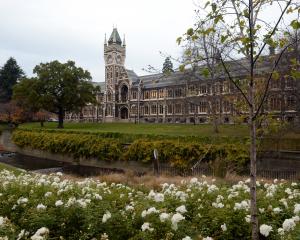
The discussion surrounding the Treaty Principles Bill reveals two very different ways of understanding history.
An ahistorical understanding gives a sacred quality to human events, imbuing them with a spirit of timeless authority beyond human intervention. The 1840 Treaty of Waitangi and the post-1986 partnership principles are given this spiritual authority. It is seen in such phrases as the Treaty speaks to us today and in the fruitless search for a definitive Treaty meaning.
The historical understanding is completely different. Events are understood to be created by humans and are of their time and place. What people create can be retained, changed, or discarded. It is not the ancestors, the fates or the capricious gods which control us. Democracy brings that power down to earth, to be exercised on our behalf by elected representatives without appeal to a spiritual authority.
The confusion between historical and ahistorical time perception has distorted legal approaches to Treaty matters. Given suggestions in the media that the judiciary has authority equal to Parliament, the obvious needs stating — New Zealand is not the United States. We do not have the executive, the legislative and the judiciary in a balance-of-power arrangement. In this country, the judiciary is an institution under the authority of Parliament. Parliament makes and changes the law. The courts enact Parliament’s legislation: 20 years ago Michael Cullen warned about judicial over-reach, saying Parliament has the last say on the law of the land, judges do not.
The difference between ahistorical and historical time perception is useful in trying to make sense of legal non-sense. The legal system is, and must be, a conservative one looking to precedent for guidance. But in conserving what Parliament has legislated, politicised judges have slipped from conservatism into ahistoricism. The slippage can be seen in decisions which appeal to a timeless Treaty mandate, and more recently in decisions referring to tikanga — practices informed by spiritual authority. This spillage is an error. No human acts are timeless. All are open to preserving or changing. The political question is who has the authority to decide what to keep and what to jettison.
The Treaty Principles Bill is unequivocally democratic in giving that authority to the people through the democratic parliamentary system. This is being strongly resisted by radical traditionalists who use an ahistorical perception of time to insist that what happened in 1840 must bind people forever. The skilful use of an ahistorical version of history, lodged alongside genuine historical claims, has enabled re-energised tribalists to claim economic resources and political power. The beneficiary is the historical located tribal economic corporation.
The impressive success of tribal corporations such as Ngai Tahu and Tainui is because they act, as do all corporations, in the modern world. They accumulate profits for distribution to shareholders. There is no mauri working here, no timeless agency from the spirit world. Nothing but modern business practices and prudent investment. The timelessness of tradition exists only in performative cultural beliefs and practices as a reminder that this is a tribal corporation, lest one forgets.
The appeal to ahistorical thinking is seductive and it is the Treaty Principles Bill’s reference to specified treaty settlements that the slip into ahistorical time perception may occur. If politicised judges support tribal corporate interests, the belief in the Treaty’s sacred timelessness may well be extended to Treaty settlements.
Such an ahistorical interpretation will be a grave mistake and continue the slide into New Zealand’s racial division. Just as the Waitangi Treaty itself was an event fixed in the conditions of the early 19th century, so, too, are late 20th century Treaty settlements contracts of their time. All contracts are written in a historical period and must be available to future parliaments for retention or change. Breaking a contract is a serious matter given their role in economic stability. But contracts must also maintain democratic stability. If there is a contest between economic stability and democratic stability Parliament must put democratic stability first.
That contest may come if Ngai Tahu attempts to use its Treaty settlement to claim large swathes of the South Island. Acquiring ownership of public land, water, flora and fauna, minerals, and forests will turn the Ngai Tahu corporation from a productive to a rentier organisation. A rentier class gives little to a nation’s prosperity but takes much in rent from others’ investment and labour. It goes against New Zealanders’ interest to allow the emergence of such a class. Parliament will be forced to choose. Which will have priority — a rentier corporation or democratic citizenry?
That decision must include an understanding of how we think about time. This is where the Bill’s discussion is directly connected to the history curriculum discussion that should also dominate 2025. The current so-called histories curriculum is informed by ahistorical thinking. Its replacement must be informed by the understanding that events are caused by humans responding to the circumstances within which they find themselves.
New Zealand’s future may be that of a prosperous first-world democratic nation or a retribalised third-world state controlled by a rentier elite. The value of the Bill is that it forces us to discuss these scenarios. Time perception needs to be involved in the choice.
- Prof Elizabeth Rata is a curriculum expert at the University of Auckland.












